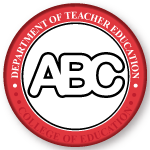
Best Practices in Teaching Digital Literacies
Author ORCID Identifier
Files
Description
Chapter 7 Digital Literacies and Climate Change: Exploring Reliability and Truth(s) with Pre-service Teachers, by James S. Damico, Alexandra Panos (UNO Faculty), Michelle Myers
Structured Abstract
Purpose – To consider the ways two pre-service teachers evaluated digital information sources about climate change in order to highlight the challenges and possibilities of an instructional approach aimed at cultivating digital literacies about climate change among pre-service teachers.
Design – The qualitative research design focuses on two pre-service teachers’ written reflections and participation during class discussions across two sessions in a content literacy course. The theoretical framework that guided the analysis was civic media literacy.
Findings – Findings of this study highlight conceptions of reliability that two participants held (reliability as relative or as evidentiary support) as they worked with web sources about climate change. These conceptions reflected a denialist orientation to climate change science.
Practical Implications – This study contributes to the literature that considers the ways pre-service teachers work with websites about socioscientific topics. It highlights how an instructional model can help promote digital literacy practices that center on evaluating the reliability of websites about climate change. It also includes a companion framework called fake experts, logical fallacies, impossible expectations, cherry picking, and conspiracy theories (FLICC) that can be used to guide students to better understand techniques and practices of science denial.
ISBN
978-1-78754-434-5
Publication Date
2018
Publisher
Emerald Publishing Ltd.
City
West Yorkshire, UK
Keywords
Climate change, digital literacies, online reading, FLICC, climate denial, critical literacy, media literacy, civic education
Disciplines
Education
Recommended Citation
James S. Damico , , Alexandra Panos , , Michelle Myers , (2018), Digital Literacies and Climate Change: Exploring Reliability and Truth(s) with Pre-service Teachers, in Evan Ortlieb , Earl H. Cheek, Jr. , Peggy Semingson (ed.) Best Practices in Teaching Digital Literacies (Literacy Research, Practice and Evaluation, Volume 9) Emerald Publishing Limited, pp.93 - 107

